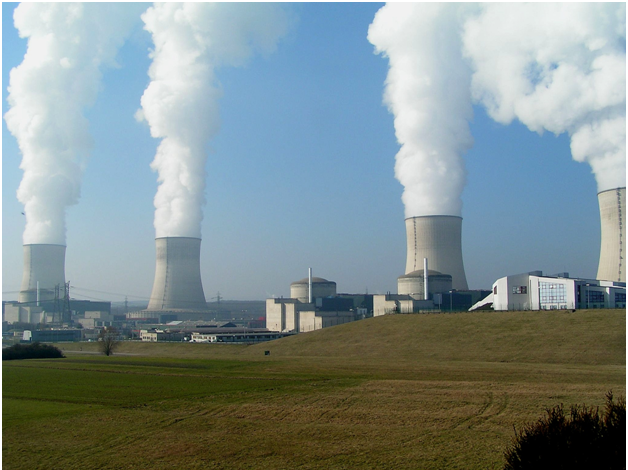I have often dealt with the question of what impact nuclear power might have on climate change mitigation. Considering the recent Paris accords on reduction of carbon dioxide emissions and the recent election of a new U.S. president, I thought that I would revisit the topic. The incoming U.S. president has said that he does not believe that scientific claims of major climate change are real. He once said that he thought that it was a hoax made up by the Chinese for propaganda purposes. He has said that he intended to stop all government aid for the development of alternative renewable energy and that he thinks that the U.S. needs more nuclear power. One of the major current selling points for nuclear power is that it does not release carbon dioxide. In this blog I am going to talk about that claim.
One problem with nuclear power is the fact that it is very expensive and time consuming to build new nuclear power plants. Licensing and construction of new nuclear power plants can require up to ten years. With the availability of cheap fossil fuels and the falling prices of wind and solar energy, nuclear power finds itself in a struggle to compete. Nuclear plants are being closed in the U.S. because they cannot compete in the open energy market. There are estimates that in the next ten years, as many as fifteen to twenty of the one hundred nuclear power plants in the U.S. may have to be closed because of financial difficulties. The Nuclear Regulatory Commission requires that nuclear power plants operate at a profit in order to retain their licenses. Currently, the NRC is monitoring the decommissioning of nineteen closed nuclear power plants. Renewable sources of power are already much cheaper to construct than nuclear power plants and the price of renewables in continually dropping while the price of nuclear power is rising.
Proponents of nuclear power say that if nuclear power is dropped, it will mean the increase of fossil fuel use which will increase the release of carbon dioxide and accelerate climate change. However, all of the existing fossil fuel power plants are already operating at maximum efficiency. New investments in increasing energy production capacity tend to be either in the construction of wind and solar power plants or increasing the efficiency and reducing the carbon dioxide emissions of existing fossil fuel plants. Closing nuclear power plants will not result in a great increase in the amount of carbon dioxide currently being released by power plants.
The argument for nuclear power that prompted this post is the repeated assertion that nuclear power generation does not emit carbon dioxide. However, the entire nuclear life-cycle which includes mining uranium, refining the uranium ore, creating the nuclear fuel, constructing the power plants, dealing with the waste from the power plants and decommissioning the power plants releases vast amounts of carbon dioxide. And, a great deal of this carbon dioxide is released at the beginning of the life-cycle of a nuclear power plant. When the carbon dioxide generated by nuclear power over the lifetime of a power plant is compared to hydro, wind and solar, it turns out that nuclear power generates more carbon dioxide than any of these renewable sources of energy.
Considering the cost of nuclear power, the generation of substantial carbon dioxide, the lack of a way of dealing with nuclear waste and the possibility of major nuclear accidents, nuclear power is simply not a viable solution to the need for mitigation of climate change.
